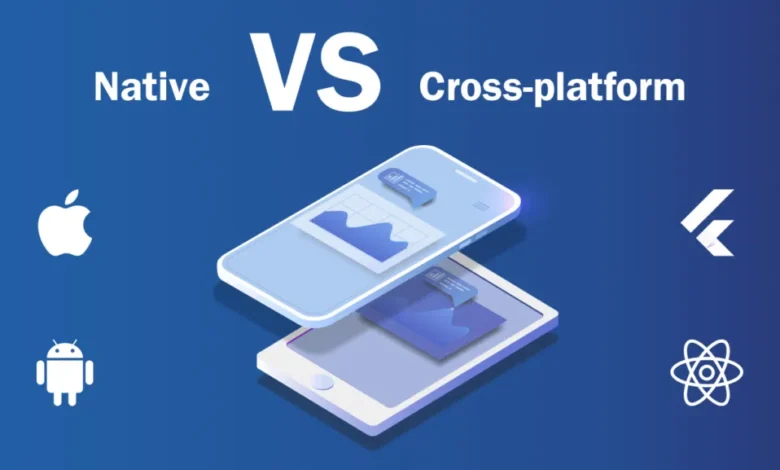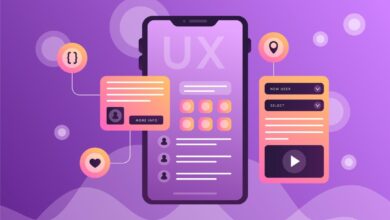Native vs Cross-Platform: What’s Better for Healthcare Apps on Android?

Do you know what exactly are the perks of using native apps development technologies? If not? Then what perks do you get after using cross platform technologies?
The entire process is very difficult and different because the app developers who are associated with companies offering healthcare mobile app development services pretty much understand how necessary it is to carry forward the ideas and build a better version of the healthcare applications.
In this blog we will discover the ways through which you can learn about the differentiation between native and cross platform app development.
Are you excited to explore it with us? Let’s get started then.
What is Cross Platform App Development?
Cross platform is a method of building mobile apps using a single codebase and it can be deployed for both operating systems like iOS and Android. A single codebase is necessary for the app logic and core functionalities, reducing the development efforts and costing behind it.
All the developers specialised on frameworks and tools like Flutter. React Native and Xamarin are necessary to build up the app and deploy it on App Stores for customer usage.
Cross platform apps can run on multiple operating systems as it allows the app developers to reach a broader audience not restricted to one platform only.
The app developers working on cross platforms should have prior experience with development processes, and the expertise to deploy the app with a compelling caption and images of the project.
It actually attracts the audience and makes them closer to your app marketing tactics.
What is Native App Development?
A native app development refers to the process of creating software applications that are tailored for a specific operating systems like iOS or
Android.
Moreover, by using native programming languages and tools you can build the applications from the ground scratch and take it up to the heights of success.
This means building from the ground up, ensuring the app runs directly on the device’s operating system and can leverage its unique features and capabilities.
Native applications are designers for meeting the specific platform needs and are developed using languages and tools available for the customer top usage.
Moreover, native applications have direct access to the devices hardware and software that allows them to get features like camera, microphone and GPS for instant connectivity.
Native applications can also be identified to meet the personal needs and preferences of the users associated that actually bring a more powerful and sophisticated digital experience to the end users.
But one of the drawbacks is that. The app developer has to work on separate code bases for Android and iOS both.
For Android, the app developers use languages like Java or Kotlin, while for iOS, they use Objective-C or Swift.
Android software development companies are keeping all these statistics and factors in mind to carry forward the things in a better manner.
It’s pretty much important to keep an eye on the shortcomings and other key phrases because that’s how you will rule out the possibilities.
Now as we are done with the basic possibilities, let’s start discussion about the difference phase.
Native or Cross Platform App Development — Healthcare Domain
Healthcare as we have already discussed is one of the sensitive niches because it is associated with the health of the patients.
When it comes to delivering the best healthcare app? The choice is always stuck between native and cross platform development as it depends entirely on different different factors. Which we are going to discuss below for you:
Native App Development for Healthcare Apps
Let’s start discussing about the native app development pros:
- These apps come with high performing user experience and offer a memorable digital experience that stays in the mind of the end users.
- The basic integration with the devices like hardware for example, smart watches for monitoring the health metrics like, heart rate. Number of walks taken in a day and others along with smooth user integration.
- The native app for healthcare also comes with enhanced security regulations and compliance features for better performance and health benefits.
Now let’s hear about the cons associated with the native app development for healthcare applications:
- It comes with higher development cost and time for the entire work base.
- It comes with a separate code base for both iOS and Android.
- You require a professional Android developer for Android platform whereas, an iOS developer for backend development of iOS apps.
Cross Platform App Development
Now we are going to learn about cross platform app design and development pros and cons for healthcare applications:
Pros of Cross-Platform App Development
- Faster development and lower costs
- Single codebase for multiple platforms
- Easier maintenance and updates
Cons of Cross Platform App Development
- Potential performance issues
- Limited access to device hardware
- Possible security risks
Considerations for Healthcare Domain
A custom mobile app development company consider the following things while developing a healthcare app:
- Security and Compliances Native app development are preferred sensitive healthcare data and strict regulatory requirements. Whereas, native apps can offer a seamless user experience that is necessary for healthcare apps with better reliability and performance metrics.
- Cross Platform Time and Development the development can be a good option for the healthcare apps whereas. If there are limited resources and tight deadlines then, cross platform development is best for you.
Key Takeaway
You can consider both the approaches that combine the benefits of both native and cross-platform development. Depending on your specific project requirements. However, Android app developers and iOS app developers when stuck with strict deadlines prefer to opt for cross platform technologies whereas. Those who don’t have such issues can do native app development as the core technology.
We tried to cover up all the necessary differentiators that will help you make the decision instantly. However? If you still think that we have missed anything within the blog then. Feel free to share your thoughts in the comments section. We would love to hear it back from you.




